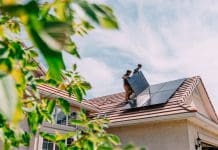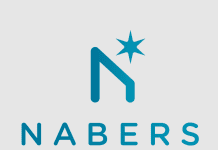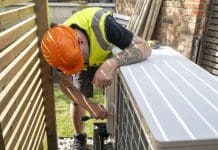Investing in solid wall insulation brings huge benefits in terms of reduced energy costs and carbon emissions. Steve Tanner, General Manager at SWIGA discusses what its guarantee can offer the consumer…
With many energy saving insulation solutions readily available for homes and businesses large and small, there really is no excuse not to insulate.
Although months away from winter, the Solid Wall Insulation Guarantee Agency (SWIGA) is advising that now is the perfect time for property owners to invest in insulation and combat rising energy costs and climate change sooner rather than later.
The way a building is constructed, insulated, ventilated and the type of fuel used, all contribute to its carbon emissions. A worrying fact is that a significant proportion of the money spent on energy is literally being thrown out of the window as a result of inadequate levels of insulation, with around 58% of the heat being lost through the roof and walls alone. By simply insulating with SWI savings of up to £460* per year can be achieved.
The Solutions
Solid walls can be insulated with either; External Wall Insulation (EWI), Internal Wall Insulation (IWI) or a combination of both and either option will greatly increase comfort, while also reducing energy bills and the associated environmental impact.
IWI typically consists of either dry lining in the form of laminated insulating plasterboard (known as thermal board) or a built-up system using fibrous insulation such as mineral wool held in place using a studwork frame.
IWI has the advantage that it can be installed room by room with the tenants in situ. It increases internal surface temperature within a room and also improves response to heating input when heated intermittently. IWI can also be installed in any weather and cost can be kept to a minimum if combined with other works, e.g. if internal repairs or rewiring is required.
Laminated insulated plasterboard can be used in many situations and is fixed directly to the existing brick. Depending on the system, thermal boards can either be screwed or glued using a dry wall adhesive directly onto the brick work just like standard plaster board. It is normally thinner than studwork systems due to its better thermal conductivity, although there are instances, such as uneven existing walls where a studwork based system may be more suitable. EWI comprises of an insulation layer fixed to the existing wall, with a protective render or decorative finish including real brick slips or brick effect finishes.
EWI increases the thermal quality of the building – particularly relevant when refurbishing non-traditional housing. It also overcomes moisture and condensation issues, protects the existing building envelope can reduce heating bills by up to 25% as well as greatly improve the appearance of the building.
EWI is a tried and tested method of upgrading the thermal performance and external appearance of existing properties which are literally transformed into warm, energy efficient and attractive homes and buildings. Improving appearance is of particular significance to many local authorities targeting housing projects in poorer areas. Adding EWI on a whole street basis will raise residents’ morale and give a sense a pride in their community.
There are many benefits of EWI including the fact that no living space is lost. There is minimum disruption for the residents as the work can be carried out while they are in their homes and it also adds a waterproofing layer to the outside of the property which will last for decades with minimal maintenance required.
There are a lot of things for the consumer to consider during the installation of IWI or EWI. Good quality detailing in design and installation is key and different materials and systems are available each with distinct benefits.
Not only does SWIGA provide consumer protection with our independent 25-year guarantee, we can offer the consumer independent industry expertise – our membership includes all major system designers who we can draw on, but we also have an independent approach and can offer expert opinion on client projects.
We differ from insurance companies in that in the unusual event of installation issues, we will arbitrate on any disputes and get remedial work done, then deal with the contractual aspects between our members afterwards. Our prime focus has always been and is on prevention, not cure. Our Quality Assurance framework is key and our pre-vetting procedures do more than any other to avoid issues from the outset.
The Government’s new Green Deal Home Improvement Fund and the Scottish equivalent are a big step in opening up the market for individual householders living in solid wall homes but these schemes won’t be enough on their own though.
It is vitally important that the proposed changes to the Energy Company Obligation are decided upon and communicated to the industry and other stakeholders as soon as possible. SWIGA hopes that government increases the Solid Wall Insulation minima from the original proposal otherwise there will be a large gap in their CO2 commitment, and a large impact on the SWI industry, with many jobs at risk.
Membership of SWIGA is open to SWI installers and System Certificate Holders. For more information about SWIGA please contact Steve Tanner.
* Based on a detached gas heated house, with an 81% efficient gas boiler and average gas tariff of 4.21p/kWh and electricity tariff of 13.52 p/kWh; Figures from Energy Saving Trust and valid for 2014.
Steve Tanner
General Manager
Solid Wall Insulation Guarantee Agency (SWIGA)
Tel: 01525 853300

















